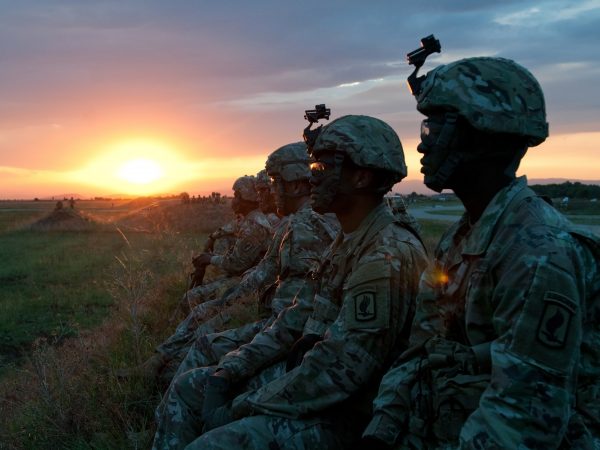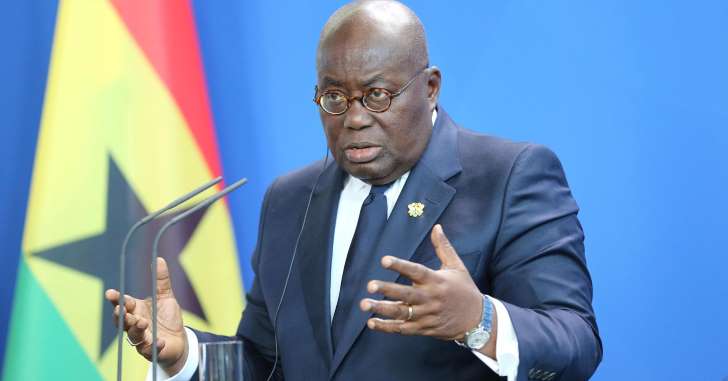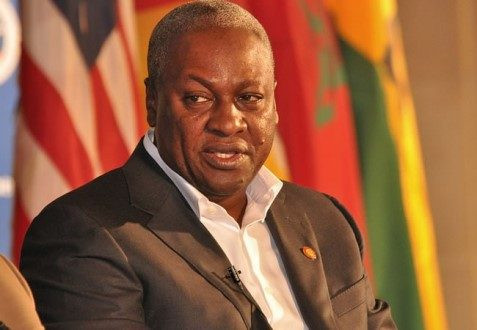The finer details of the agreement ratified by parliament clearly spells out what the US Military can do in Ghana.
Inspection of weapons
Critics say the fact that Ghana will not inspect what the US Military will bring into Ghana could lead to dangerous weapons coming into Ghana.
Weapons US Military cannot bring into Ghana.
However, the voluminous document that guides the entire defence co-operation agreement has banned US Military from bringing to Ghana weapons such as guided missiles, nuclear weapons, torpedoes, chemical weapons, by-products of chemical ammunitions.
From informal interactions, the Military High Command, which fully supports the agreement based on the benefits to Ghana, is of the view that the clauses that critics are worried about are principals that cut across Military External Operations agreements all over the world.
Military Agreements not known to civilians
It is of the view that these are all part of Military Agreements not known to the civilian public, hence the outrage by a section of the public.
Travel without visa and passport
Information gathered through unofficial interactions with the Military High Command indicates that Ghanaians soldiers also travel outside Ghana without visa and passport for External Operations, and therefore extending same to US soldiers under the US Military Co-operation Agreement is normal.
Ghanaian soldiers wield weapons in foreign land
It is instructive that Ghanaian soldiers also use weapons and walk freely in all those countries whenever they are on External Operations as part of Military Agreements between countries.
Soldiers, crime and trial
When a Ghanaian soldier commits serious crime during External Operations, the errant soldier is repatriated immediately since the law does not allow such soldier to be tried or jailed in those countries, and same has been extended to American soldiers under the newly ratified Defence Co-operation Agreement.
Radio frequency
It is a fact that when Ghanaian troops are on External Operations, they also mount, establish and use radio frequency (airwaves) in that country.
Driving permit
Generally, Ghanaian soldiers can drive in any foreign nation with their unexpired foreign Driver’s License, in addition to International Driving Permit (IDP) as visitors, for one year.
Agreement is both strategic and tactical
The agreement is both strategic and tactical, and it is meant to take care of peace time when the two countries train together and for periods of disaster and emergency like when there is an attack on us or in an unforeseen situation.
Waiving duties and taxes
For the Military High Command, the Americans are not bringing their equipment to Ghana to trade or do commerce. Rather, they are coming to train with the Ghana Armed Forces (GAF) and also to help Ghana when the need arises, which defeats the argument of imposing taxes on what they bring into Ghana.
“For example, are they saying that when we have an emergency (like in a terrorist attack anywhere in Ghana) and the Americans have to come assist us, we should exact tax for the equipment they bring in to do the job? I always remind them about the Melcom disaster some years ago.
“When the Israelis came to help us, did they have to pay tax? No, because they brought the equipment to help us when we were helpless. That’s the way it is, and most of those equipment, they will send back,” the Military High Command said.
Pirates hijack fishing boat in Ghana waters
South Korea has deployed a naval vessel from its regional anti-piracy effort to help in the search after a fishing boat was hijacked by pirates off Ghana.
The Foreign Ministry of South Korea said the fishing boat had about 40 crew, mostly from Ghana, but including three South Koreans. It said the pirates used a speedboat to take away the South Koreans.
South Korean President Moon Jae-in sent South Korea’s anti-piracy Cheonghae unit to the area to try to secure the South Koreans’ release, the ministry said.
The South Korean government has been working to tackle piracy with a number of African countries, as well as the United States and the European Union.
US to help Ghana Navy
This development exposes the weakness of Ghana Navy, which stands to benefit a lot from the US-Military Co-operation Agreement.
It took the US-Military Co-operation Agreement to provide a ship to Ghana Navy, as well as set up key installations with command centres, which enables Ghana Navy to identify suspicious activities in Ghana.
$20m for training and equipment for 2 years
As part of new agreement, the US Military has earmarked $20 million for training and supply of equipment to Ghana Armed Forces between 2018 and 2019 to prepare Ghana for any eventualities.
1962 Ghana-US security agreement
The Ghana-US security agreement was first signed during Dr Kwame Nkrumah’s regime, in 1962.
Vienna Convention on Diplomatic Relations
The Vienna Convention on Diplomatic Relations was on April 18, 1961. Senegal was the first African country to have signed a military agreement with US.
1998 Ghana-US security agreement
The second agreement was signed during the Jerry John Rawlings administration by Victor Gbeho, the then Foreign Affairs Minister, on February 24, 1998.
This agreement allowed US military personnel to use guns in Ghana, had tax waivers/duty waivers on agreed tools and equipments to be brought into Ghana, and even used their US ID cards as a license for driving here in Ghana.
This agreement had no exit clause or stipulated time frame for operation; it, therefore, binds Ghana till date.
2003 ‘Non Surrender Agreement’
In October 2003, President John Agyekum Kufuor’s administration signed the ‘Non Surrender Agreement’, a military agreement with the US.
This agreement passed through parliament as a constitutional requirement.
2015 Agreement under President John Mahama
A letter dated February 12, 2015 and signed by Hannah Nyarko for the Foreign Affairs and Regional Integration Minister made copious references to the agreement reached between ex-President John Dramani Mahama and the US Deputy Assistant Secretary of State, Miss Bisa Williams, at the Flagstaff House on September 4, 2014.
Based on that agreement, the US government wrote a diplomatic note dated February 5, 2015, a copy of which was attached to the February 12 letter, in which the US government sought approval from their Ghanaian counterparts to use “Ghana’s territory and airspace” for the operation.
The operations involved the deployment of 200 US marine forces, Africa personnel, 4 MV 22 Osprey and 2 C130 Hercules aircraft.
The deployment was scheduled to begin on February 10, 2015 and last for approximately five weeks if approved.
Apart from that, the diplomatic note by the US also requested for clearance for US aircraft to conduct over-flights within Ghana’s airspace for the duration of the mission. Permission for the six US aircraft to operate from and be staged on the Airforce rump and for the deploying forces to leave and operate out of the US expeditionary reception facility located at the Airforce base at the Burma Camp.
Apart from the five-week US military operation, the then Foreign Minister, Hannah Tetteh, also signed a separate agreement with the US government in April 2015, which formed the basis for the enhanced military co-operation agreement in 2018.
The same facilities the US marines used while in Ghana in 2015 are the same facilities they will use in 2018.
2018 US–Military Co-operation Agreement
Dominic Nitiwul, the current Minister of Defense, has also signed a similar security agreement with the US, which was ratified by parliament somewhere on March 20 – 23, 2018.
This agreement merges the earlier agreements, in addition to Obanga Mi Express (training on our coast and oil protection) and national disaster response training.
The exceptionality on this agreement is that it includes a termination clause on both party ends that demand a written year notice for termination of agreement, unlike the others.
This agreement had followed all due processes, i.e., Cabinet Approval, Attorney-General’s Department, Ministry of Foreign Affairs, National Security, Ghana Armed Forces, amongst others, to make inputs to the agreement. This was later brought to parliament for ratification.
The Joint Committee on Security, Defense and Parliamentary Affairs sat on this. At the time of sitting, the NPP MPs were 10 and the NDC MPs were 14, including James Agalga, who was the Deputy Minister of Interior in the previous administration.










 (Selorm) |
(Selorm) |  (Nana Kwesi)
(Nana Kwesi)